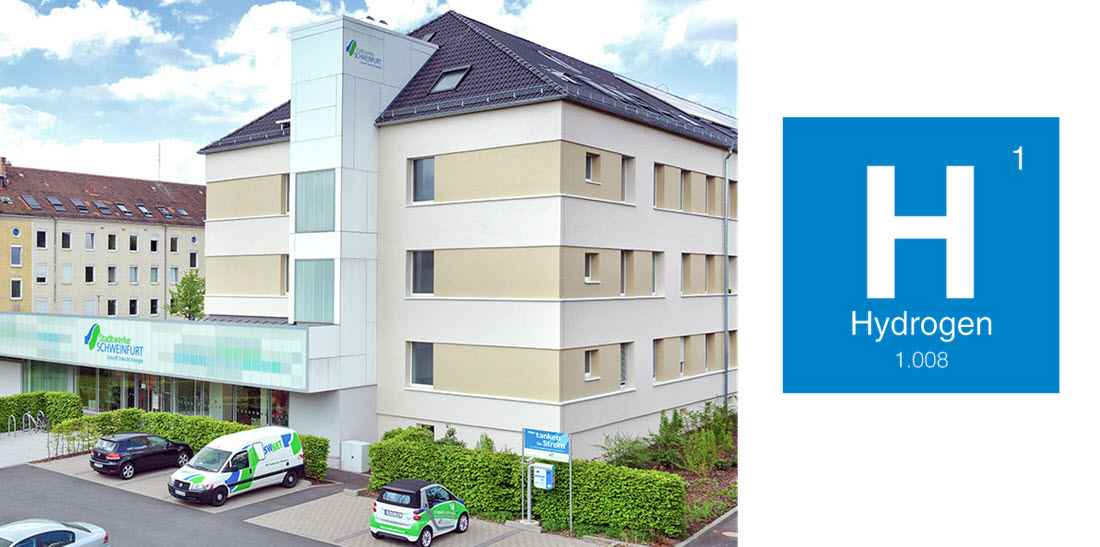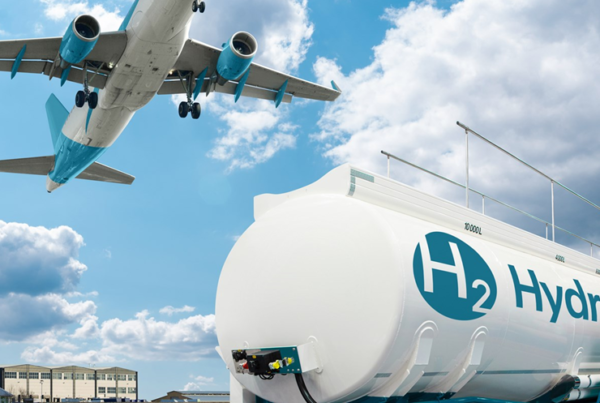
Hydrogen is great hope for the energy transition. It can be used in a variety of ways for climate-friendly heat and electricity production in industry and households, as well as for environmentally-friendly mobility. It also makes it possible to store regenerative energy in significant quantities.
Stadtwerke Schweinfurt are testing fuel cells as an electricity-generating heating system
Fuel cell technology offers the possibility to generate heat and electricity from environmentally friendly hydrogen and to achieve high levels of efficiency. Stadtwerke Schweinfurt is now testing this in a first project. “The fuel cell heating works on the principle of so-called combined heat and power (CHP). In contrast to other CHP technologies such as CHP, this does not work via conventional combustion, but rather via an electrochemical reaction in which hydrogen reacts with oxygen and heat and electricity are generated, ”explains Andreas Göb, Head of Technology at Stadtwerke Schweinfurt. This process is also referred to as “cold combustion” because it is not conventional combustion as is otherwise used in heating systems.
In the future, 484,500 kilometers of gas network can also be used for hydrogen
“Since there is still no hydrogen pipeline network in Germany, a gas connection is necessary for the operation of the fuel cell heating,” continues Göb. With the help of a so-called reformer, the hydrogen is split off from natural gas (which largely consists of H2) and used for the chemical reaction of “cold combustion”. The direct current obtained is converted to alternating current and can then be used directly as household electricity. If more electricity is produced than is necessary, it will be fed into the power grid. The heat and steam generated are used for heating and hot water in the household.
The existing gas network can already take up to 10 percent hydrogen in many areas. In the future, the gas infrastructure can be upgraded to even larger quantities. The Federal Association of Energy and Water Management (BDEW) reports that hydrogen can be stored in the gas infrastructure and transported over the existing 484,500 kilometers of the gas network. This is an important framework for the diverse use of hydrogen.
Hydrogen becomes important for climate goals
Green gases offer considerable potential to significantly reduce CO 2 emissions in all sectors. Hydrogen, in particular, can play an important role in this. Because the existing gas networks and storage facilities offer the optimal infrastructure for bringing renewable energies to the heating market.
Hydrogen can be obtained through the electrolysis of water. Water (H 2 O) is split into its constituents hydrogen and oxygen in an electrolyzer by applying an electrical voltage. A prerequisite for using the term “green hydrogen” is that the electricity used comes from CO 2 -neutral energy sources (e.g. wind, biomass or photovoltaics). In order to make hydrogen “green” through and through, consistent expansion of renewable energies is required.
Gas can already make an important contribution to reducing CO 2 emissions in the heating market: According to BDEW, around 2.7 million buildings with oil heating are located in an area that is connected to a gas line or a district heating network Avoid gas heating quickly and easily 14 million tons of CO 2. In addition, modern gas heating systems can already be operated with green gases without any technical changes. In the future, an increasing proportion of hydrogen will also be able to be used in the heating market. In this way, consumers can make an important contribution to protecting the climate when heating their own four walls.
“I am pleased that with our first fuel cell project we can test future-oriented technology for our customers and thus continue to drive the design of the energy transition at the Schweinfurt site,” comments Thomas Kästner, Managing Director of Stadtwerke Schweinfurt, about the start of the project.
Read the most up to date Fuel Cell and Hydrogen Industry news at FuelCellsWorks




